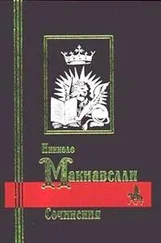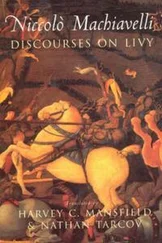The Gonfalon of Justice was then in the hands of Bernardo Lotti, a man not in the confidence of Piero, who was therefore disinclined to attempt aught while he was in office; but no inconvenience would result from the delay, as his magistracy was on the point of expiring. Upon the election of Signors for the months of September and October, 1466, Roberto Lioni was appointed to the supreme magistracy, and as soon as he assumed its duties, every requisite arrangement having been previously made, the people were called to the piazza, and a new Balia created, wholly in favor of Piero, who soon afterward filled all the offices of government according to his own pleasure. These transactions alarmed the leaders of the opposite faction, and Agnolo Acciajuoli fled to Naples, Diotisalvi Neroni and Niccolo Soderini to Venice. Luca Pitti remained in Florence, trusting to his new relationship and the promises of Piero. The refugees were declared rebels, and all the family of the Neroni were dispersed. Giovanni di Neroni, then archbishop of Florence, to avoid a greater evil, became a voluntary exile at Rome, and to many other citizens who fled, various places of banishment were appointed. Nor was this considered sufficient; for it was ordered that the citizens should go in solemn procession to thank God for the preservation of the government and the reunion of the city, during the performance of which, some were taken and tortured, and part of them afterward put to death and exiled. In this great vicissitude of affairs, there was not a more remarkable instance of the uncertainty of fortune than Luca Pitti, who soon found the difference between victory and defeat, honor and disgrace. His house now presented only a vast solitude, where previously crowds of citizens had assembled. In the streets, his friends and relatives, instead of accompanying, were afraid even to salute him. Some of them were deprived of the honors of government, others of their property, and all alike threatened. The superb edifices he had commenced were abandoned by the builders; the benefits that had been conferred upon him, where now exchanged for injuries, the honors for disgrace. Hence many of those who had presented him with articles of value now demanded them back again, as being only lent; and those who had been in the habit of extolling him as a man of surpassing excellence, now termed him violent and ungrateful. So that, when too late, he regretted not having taken the advice of Niccolo Soderini, and preferred an honorable death in battle, than to a life of ignominy among his victorious enemies.
The exiles now began to consider various means of recovering that citizenship which they had not been able to preserve. However, Agnolo Acciajuoli being at Naples, before he attempted anything else, resolved to sound Piero, and try if he could effect a reconciliation. For this purpose, he wrote to him in the following terms: "I cannot help laughing at the freaks of fortune, perceiving how, at her pleasure, she converts friends into enemies, and enemies into friends. You may remember that during your father's exile, regarding more the injury done to him than my own misfortunes, I was banished, and in danger of death, and never during Cosmo's life failed to honor and support your family; neither have I since his death ever entertained a wish to injure you. True, it is, that your own sickness, and the tender years of your sons, so alarmed me, that I judged it desirable to give such a form to the government, that after your death our country might not be ruined; and hence, the proceedings, which not against you, but for the safety of the state, have been adopted, which, if mistaken, will surely obtain forgiveness, both for the good design in view, and on account of my former services. Neither can I apprehend, that your house, having found me so long faithful, should now prove unmerciful, or that you could cancel the impression of so much merit for so small a fault." Piero replied: "Your laughing in your present abode is the cause why I do not weep, for were you to laugh in Florence, I should have to weep at Naples. I confess you were well disposed toward my father, and you ought to confess you were well paid for it; and the obligation is so much the greater on your part than on ours, as deeds are of greater value than words. Having been recompensed for your good wishes, it ought not to surprise you that you now receive the due reward of your bad ones. Neither will a pretense of your patriotism excuse you, for none will think the city less beloved or benefited by the Medici, than by the Acciajuoli. It, therefore, seems but just, that you should remain in dishonor at Naples, since you knew not how to live with honor at home."
Agnolo, hopeless of obtaining pardon, went to Rome, where, joining the archbishop and other refugees, they used every available means to injure the commercial credit of the Medici in that city. Their attempts greatly annoyed Piero; but by his friends' assistance, he was enabled to render them abortive. Diotisalvi Neroni and Niccolo Soderini strenuously urged the Venetian senate to make war upon their country, calculating, that in case of an attack, the government being new and unpopular, would be unable to resist. At this time there resided at Ferrara, Giovanni Francesco, son of Palla Strozzi, who, with his father, was banished from Florence in the changes of 1434. He possessed great influence, and was considered one of the richest merchants. The newly banished pointed out to Giovanni Francesco how easily they might return to their country, if the Venetians were to undertake the enterprise, and that it was most probable they would do so, if they had pecuniary assistance, but that otherwise it would be doubtful. Giovanni Francesco, wishing to avenge his own injuries, at once fell in with their ideas, and promised to contribute to the success of the attempt all the means in his power. On this they went to the Doge, and complained of the exile they were compelled to endure, for no other reason, they said, than for having wished their country should be subject to equal laws, and that the magistrates should govern, not a few private individuals; that Piero de' Medici, with his adherents, who were accustomed to act tyrannically, had secretly taken up arms, deceitfully induced them to lay their own aside, and thus, by fraud, expelled them from their country; that, not content with this, they made the Almighty himself a means of oppression to several, who, trusting to their promises, had remained in the city and were there betrayed; for, during public worship and solemn supplications, that the Deity might seem to participate in their treachery, many citizens had been seized, imprisoned, tortured, and put to death; thus affording to the world a horrible and impious precedent. To avenge themselves for these injuries, they knew not where to turn with so much hope of success as to the senate, which, having always enjoyed their liberty, ought to compassionate those who had lost it. They therefore called upon them as free men to assist them against tyrants; as pious, against the wicked; and would remind the Venetians, that it was the family of the Medici who had robbed them of their dominions in Lombardy, contrary to the wish of the other citizens, and who, in opposition to the interests of the senate, had favored and supported Francesco, so, that if the exiles' distresses could not induce them to undertake the war, the just indignation of the people of Venice, and their desire of vengeance ought to prevail.
War between the Venetians and the Florentines—Peace re–established—Death of Niccolo Soderini—His character—Excesses in Florence—Various external events from 1468 to 1471—Accession of Sixtus IV.—His character—Grief of Piero de' Medici for the violence committed in Florence—His speech to the principal citizens—Plans of Piero de' Medici for the restoration of order—His death and character—Tommaso Soderini, a citizen of great reputation, declares himself in favor of the Medici—Disturbances at Prato occasioned by Bernardo Nardi.
Читать дальше












